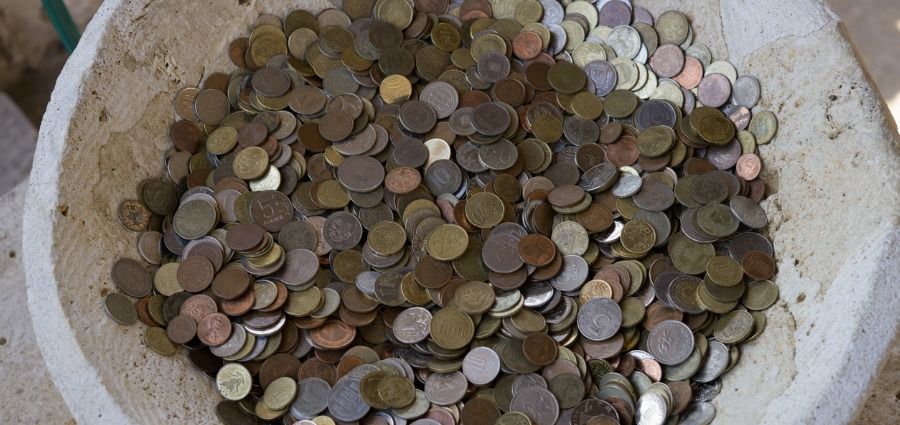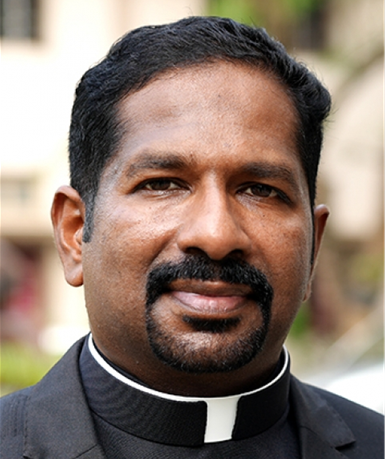
Taxes Explained - Family Reflection Video
I am at a loss what first to admire in this passage. Is it the foreknowledge that Jesus had that the coin required to pay tax was in the mouth of a fish and that the first fish to be taken? Or is it to admire Peter's faith, who was obedient in no easy matter, to go fishing, catch a fish, open its mouth and find a shekel just enough to pay the tax for two.
Albert Einstein, as genius as he was, once said: “The hardest thing in the world to understand is the income tax.
In today’s gospel, we have references to two types of tax: the temple tax and the tax levied by a king or ruler. The tax collectors at the temple ask Peter if his master pays the temple tax. Jesus responds with a question about tax to an earthly ruler.
He was, of course, referring to the Roman tax. Roman citizens didn't pay Roman taxes. Only citizens of other nations subject to Rome had to pay Roman taxes. So, too, members of a king's family didn't have to pay taxes levied by the king, implying that Jesus, as the Son of the king of the universe, did not have to pay a tax to His Father’s house.
The temple tax was a voluntary contribution of half a shekel that the people made to pay the temple's expenses, such as buying animals for daily sacrifices and providing other services. It was not a required civil payment like the one to the Roman government but a voluntary contribution that the people made to the temple.
In the book of Exodus, we read: "This is what each registered person shall give: half a shekel to the sanctuary … The rich shall give no more, and the poor shall not give less than half a shekel ... a forfeit for his life, so that no plague may come upon them for being registered" (Exodus 30:11-13, 15).
The temple tax was also paid as an atonement for the soul during the time of Jesus. Although Jesus was sinless, He had been born under the Jewish law (Galatians 4:4) and had lived under the law. He had submitted to the law by being circumcised when He was eight days old and consecrated in the purification ceremony according to the law when He was forty days old (Luke 2:22).
Now, He submits to/complies with the law by paying the temple tax, which was meant for the atonement of sins. Jesus, even though He had no sin in Himself to atone for, identified Himself with us sinners.
The Jews had their temple tax. Later in their history, the prophets asked for tithe and have gone through evolutions of contributions to the church as well. Today we do not have a required church tax. However, we, His followers, must not cringe and cry while contributing to the upkeep of our churches. The Lord will generously reward a willing contribution.
There is an anonymous saying: “A person doesn’t know how much they have to be thankful for, until they have to pay taxes on it.” He that borrows for the Lord, the Lord will repay him.
- Father Boby's inspirational homily was recorded live this morning during Mass at the Father Peyton Center. Please view the video on our Facebook page. (You don't need a Facebook account to view.)
- To view Rosary prayer and Mass streaming live, please visit our Facebook page at 11:30 am EDT, Monday – Friday. Please invite your loved ones to join us too! (You don't need a Facebook account to view.)
About Father Boby John, C.S.C.
Father Boby John, C.S.C., ordained a priest in the Congregation of Holy Cross in 2008, worked as a pastor and an educator with tribal populations in Northeast India for thirteen years. Originally from Kerala, India, Father Boby grew up with his parents and three siblings. He is a dedicated and detailed educationist with a Master's degree in Educational Management and is pursuing a PhD in Educational Leadership. He is currently working as the Co-Director of Family Rosary, USA, and as the chaplain at the world headquarters of Holy Cross Family Ministries, North Easton, Massachusetts.

